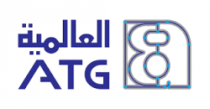PHA121, the first orally available bradykinin B2-receptor antagonist, shows clinically relevant activity in a translational in vivo model
ZUG, Switzerland, April 9, 2020 /PRNewswire/ -- Pharvaris GmbH, a clinical-stage company focused on the discovery and development of novel oral B2-receptor antagonists for the treatment of hereditary angioedema (HAE) and other B2-receptor-mediated indications, announced data from a late-breaking poster planned for presentation at the recently canceled annual meeting of the American Academy of Allergy, Asthma & Immunology (AAAAI).
Pharvaris established a proof-of-concept model for HAE in non-human primates. In this model, PHA121 inhibited bradykinin-induced changes in blood pressure at all doses tested (0.1, 0.3, 1, 3, and 10 mg/kg given orally) with a faster onset of action than icatibant. The duration of the effect was dose dependent.
"These results provide confidence in PHA121's clinical profile for the treatment of hereditary angioedema," said Berndt Modig, Chief Executive Officer and co-founder of Pharvaris. "Combined with preliminary findings from our ongoing Phase 1 study, these data demonstrate that PHA121 is a potent, orally available bradykinin B2 receptor antagonist."
The objective of the study was to investigate the ability of PHA121 to attenuate blood-pressure changes induced by bradykinin injection. Freely moving monkeys were challenged with bradykinin, resulting in a transient drop in blood pressure. Bradykinin is an endogenous peptide known to mediate signs and symptoms of HAE. The model was validated utilizing icatibant, a marketed injectable B2 receptor antagonist, providing back-translation from human clinical experience with icatibant.
The abstract of the poster was published in the Journal of Allergy and Clinical Immunology (https://doi.org/10.1016/j.jaci.2019.12.094). The poster is available on the AAAAI website (https://education.aaaai.org/sites/default/files/L37%20Lesage_1.pdf) and on the Pharvaris website.
About PHA121
PHA121 (PHA-022121) is a highly potent, specific, and orally bioavailable competitive antagonist of the bradykinin B2 receptor. PHA121 utilizes the same mechanism as icatibant, the leading therapy for on-demand treatment of HAE. Pharvaris is developing this novel small molecule for on-demand and prophylactic treatment of HAE and other bradykinin-mediated disease. Emerging clinical data from the ongoing Phase 1 study in healthy volunteers confirm PHA121's oral bioavailability and rapid exposure, and demonstrate that PHA121 has been observed to be safe and well-tolerated at the doses studied to date.
About Hereditary Angioedema
Hereditary angioedema is a rare and potentially life-threatening genetic condition with incidence between 1 in 10,000 and 1 in 50,000 people according to HAE International (HAEi), the global umbrella organization for the world's HAE patient groups. HAE patients are susceptible to sudden and prolonged attacks of edema in the hands, feet, face, gastrointestinal tract, and airways, resulting in severe swelling and pain, airway blockage, and nausea. Current therapies are limited by invasive routes of drug administration (injection or infusion), inconvenient dosing regimens, or undesired side effects.
About Pharvaris
Pharvaris is a clinical-stage company focused on bringing oral B2-receptor antagonists to patients. By targeting this clinically proven therapeutic target with novel small molecules, the Pharvaris team is advancing new alternatives to injected therapies for all sub-types of HAE and other B2-receptor-mediated indications. The company brings together executives with a breadth of expertise across pharmaceutical development and rare disorders, including HAE. For more information, visit https://pharvaris.com/.
Investor Contact
Chad Rubin, Solebury Trout
crubin@soleburytrout.com
Media Contact
Maggie Beller, Russo Partners, LLC
maggie.beller@russopartnersllc.com
+1-646-942-5631
View original content to download multimedia:http://www.prnewswire.com/news-releases/pha121-the-first-orally-available-bradykinin-b2-receptor-antagonist-shows-clinically-relevant-activity-in-a-translational-in-vivo-model-301038025.html
SOURCE Pharvaris GmbH



